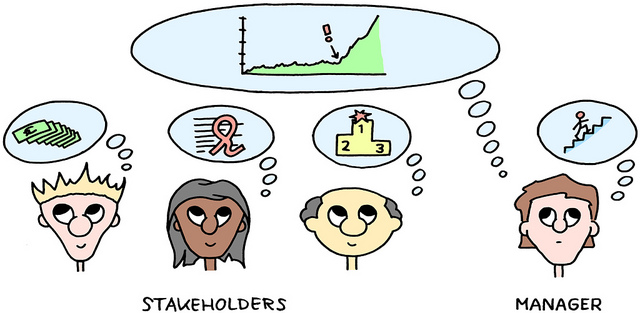In corporate enterprises there are a lot of disengaged workers. These workers are emotionally disconnected from their companies and they often lower the company’s production quotes. Every manager needs to make the employees from his team work harder and with more personal engagement. Each individual in the team has different aspirations and the manager is the person who needs to bring these in line with the company’s goals. This is easier said than done, and the purpose of this article is to give its readers advice that will help them to lead their teams in the right way and make them more motivated and efficient.

Always Be Open-Minded
Managers should always be open to new ideas. They need to be flexible and ready to take advice from everyone, including their workers. Many great inventions came from the people from the trenches, since they are the closest to the production process. “Traditional ways” are the biggest enemy of any manager. This also means that employers should be able to vocalize their thoughts about the manager’s work and the way he/she leads the team. Of course they need to do that with proper decency and only the ones who approach you with constructive critique and honest thoughts should be acknowledged. Bear in mind that different people work best under different circumstances, and you need to develop at least a slightly individual approach to all your troops. Find different ways to boost their creativity, and try to implement as much of their feedback as possible into your day-to-day operations
Be Consistent
For managers, “having a bad day” is not a reason to raise their criteria. They need to be consistent in their behavior, and that’s the only way to earn the respect from workers. People like predictability, and it is much easier to work for tough manager if the employee knows that person is always expecting only the best results. Being erratic will turn worker’s respect into fear, and this will lead to constant disobedience. A good manager realizes the power he/she has, and uses it for boosting employee’s work efficiency. By establishing the rules from the start, manager will receive the proper respect from the workers and will be able to improve their management skills much easier in the future. Never forget you need to work on yourself at all times, not just professionally. Some of the non-work related things you learn will surprisingly help you in the office. If you aim to go back to school, you can always take advantage of vet fee help approved courses, which will teach you how to take your skills even further.
Never Play Favorites
People are different. Some are more likable than others. There are plenty of workers who use their charisma to get better treatment from their bosses. Although favoritism is part of human nature, managers should avoid giving better treatment to some workers, since this leads to both animosities between the team members, and loosing or damaging the manager’s respect among the employees. The only exception from this rule is when a certain worker provides outstanding performance. Good managers are those who get the best results from their people, and that’s why only the best results can lead to a better treatment from the manager.
Get to Know Your People
Bringing out the best in the company employees is not an easy task. Except having basic managerial skills, a good organizer also needs to have lot of knowledge about the working process and about the workers themselves. Each employee has different goals and motivations, so he/she can motivate them to work better in the future. For some workers money is the prime motivation, while others would like longer vacations, more praise or a promotion. If a manager knows what each team member wants, it’s easy to stimulate workers with adequate awards and motivate them to work even harder.
These are just some of the basics for being a good organizer, but there are numerous other things that can influence the work efficiency of one team and a good manager needs to handle all of these. This task requires quite wide set of skills that go from the ones that have something to do with the business process, to the ones that are useful for handling all kinds of work-related problems.





